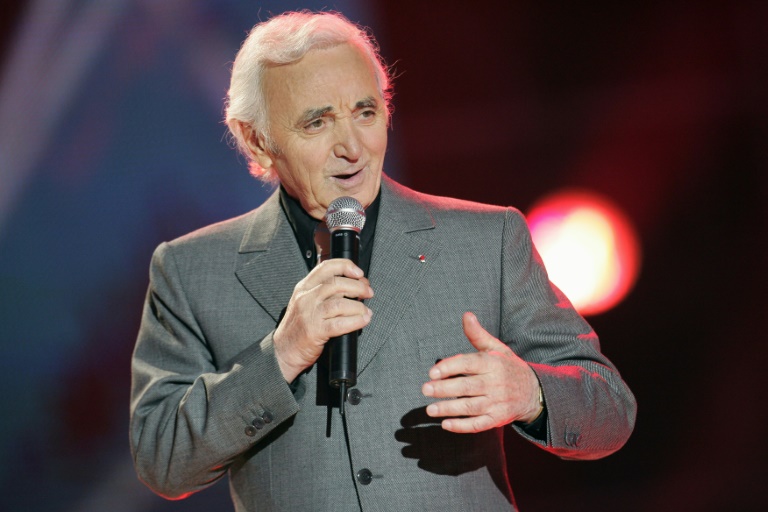
The legendary French singer Charles Aznavour — who said last week that he dreamed of breathing his last on stage — has died aged 94, his spokeswoman told AFP Monday.
The songwriter, who had just returned from a concert tour of Japan last month, passed away at his home in Alpilles in southeastern France.
He had to cancel several shows last year after breaking his arm in a fall.
But as late as Friday the diminutive singer told French television that though his Swedish-born wife wanted him to stop, he would happily die on stage.
“I always go forwards,” said the performer who tried to write a song every day. “There is no backwards step with me.
“All I can do is live, and I live on stage. I am happy up there, and you can see that,” he added.
The singer had planned to go back on tour later this month, starting with a concert in Brussels on October 26.
French President Emmanuel Macron led the tributes, praising his “unique brilliance”.
“Proudly French, viscerally attached to his Armenian roots, known all over the world, Charles Aznavour accompanied three generations through their joys and pains,” he said.
Aznavour’s family said that “his legacy will live forever” in a Facebook message in French, English and Armenian.
Multilingual and a tireless traveler, Aznavour was named “Entertainer of the Century” by CNN in 1998 because of his immense global popularity.
He pioneered a new, highly emotional way of performing, turning every song into “a one-act play”.
In the English-speaking world he was often dubbed France’s Frank Sinatra, but unlike the American crooner, he wrote his own songs, often breaking taboos about marriage, homosexuality and men talking about their emotions.
Born Shahnour Varinag Aznavourian in Paris on May 22, 1924, to parents who had fled the genocide of ethnic Armenians as the Ottoman empire collapsed, Aznavour sold more than 180 million records in a career spanning eight decades and as many languages.
Ironically, his favourite song was one of the few in his repertoire he didn’t write himself, “La Boheme”.
Family of Resistance heroes
His family were heroes of the resistance against the Nazi occupation of France during World War II, regularly risking death to hide Jews and Communist partisans in their tiny Paris apartment.
Aznavour got his big break after the war when he opened for the then rising French star Edith Piaf.
She took him to America as her manager and songwriter while he worked on his voice, and urged him to get a nose job — advice he at first resisted.
He eventually relented and had what he described as “not a nose but a long, long can opener” shortened.
While the two lived and drank together, Aznavour said they were never lovers.
“We loved each other but it was not sexual. She wasn’t my type. It’s very important to have a type,” he said.
Aznavour had his first number one hit in 1956 with “Sur Ma Vie” (In My Life). That was followed by one of his biggest hits, “Je M’voyais Deja” (It Will Be My Day).
But it was his leading role in Francois Truffaut’s film “Shoot the Piano Player” in 1960 that catapulted Aznavour to international fame.




